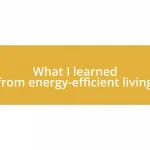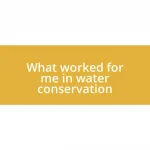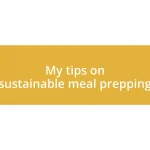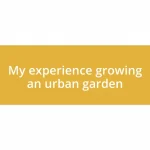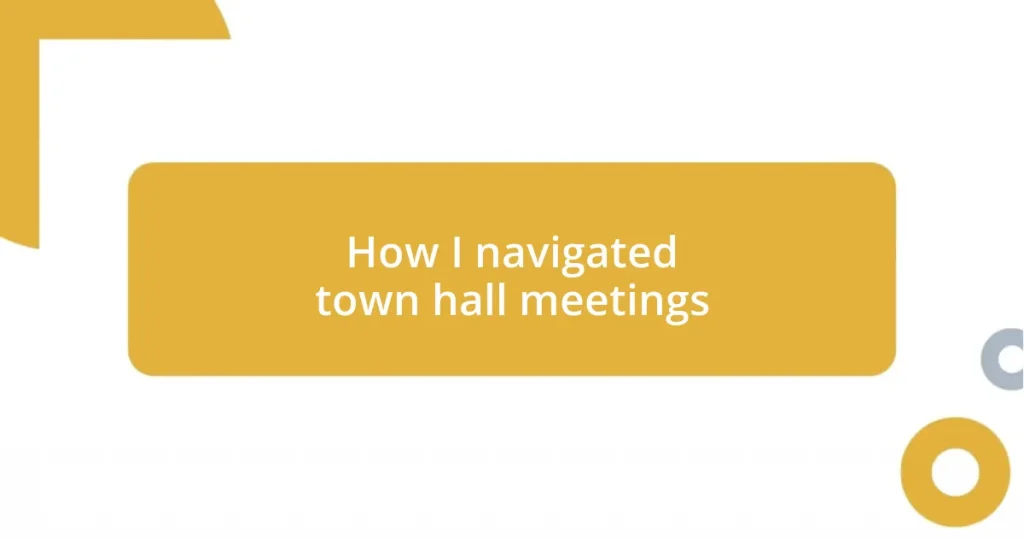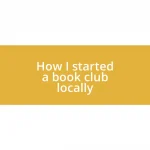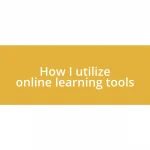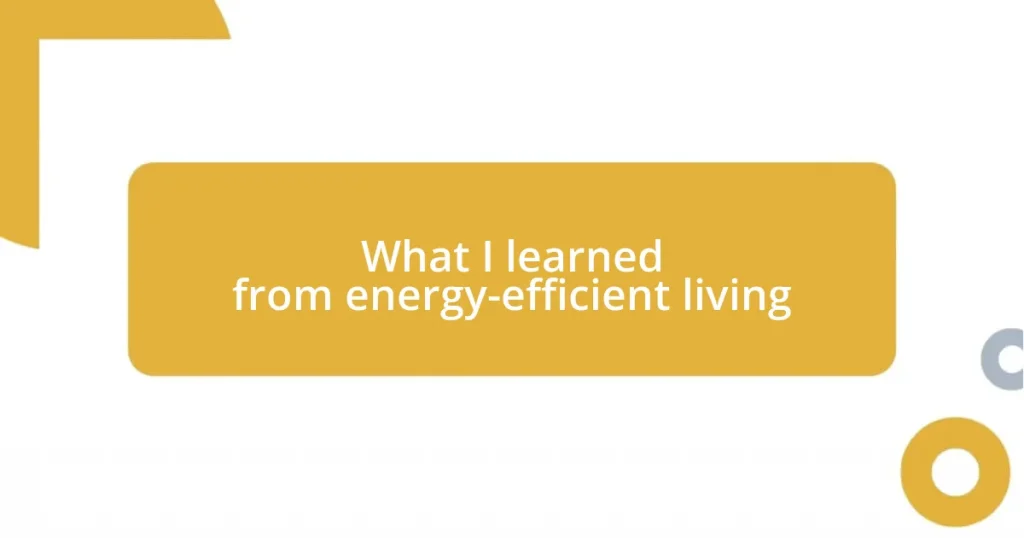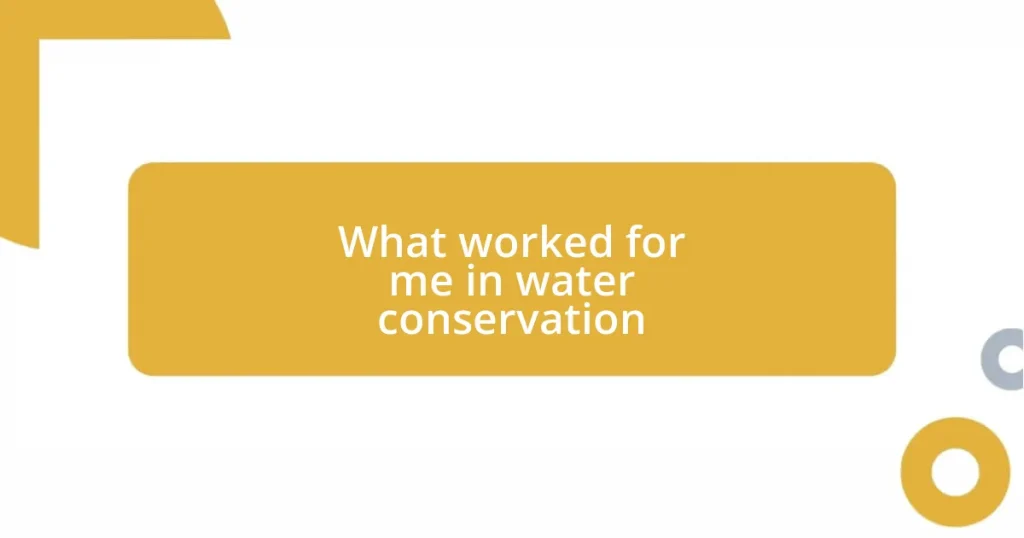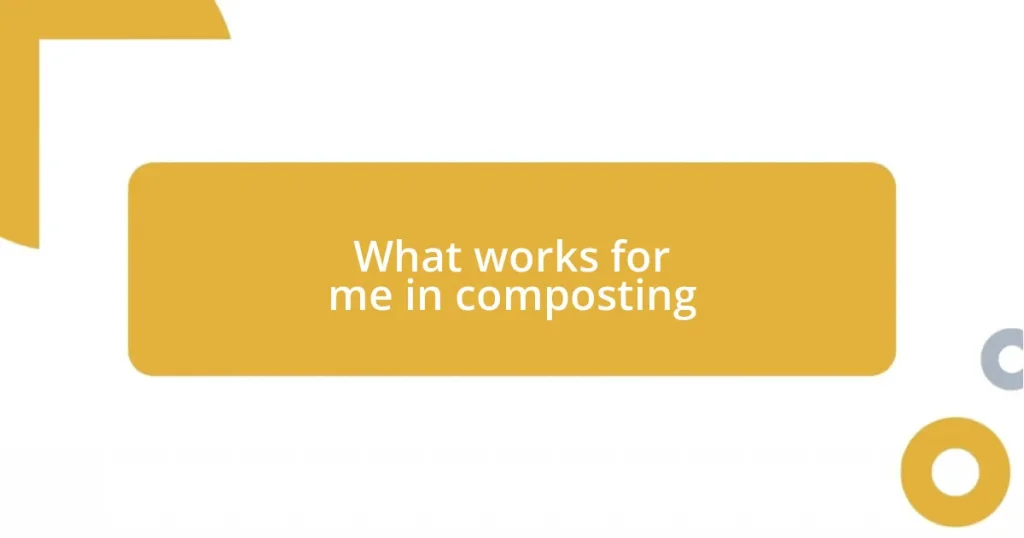Key takeaways:
- Town hall meetings facilitate community engagement, offering a platform to voice concerns and foster dialogue between citizens and local leaders.
- Preparation is key; researching topics, drafting key points, and practicing can significantly enhance confidence and effectiveness in communication.
- Active listening and building connections with community members can deepen understanding and strengthen support systems during discussions.
- Following up after meetings, addressing questions, and reflecting on participant engagement are crucial for maintaining community ties and enhancing future interactions.

Understanding town hall meetings
Town hall meetings serve as an essential platform for community engagement, allowing citizens to voice their concerns and opinions directly to local leaders. I remember attending my first town hall meeting, feeling a mix of excitement and nervousness. The atmosphere was electric, filled with individuals eager to connect their everyday experiences with the decision-makers who shape our lives. Can you imagine standing in a room where your voice genuinely matters?
These gatherings are more than just lectures; they function as a vibrant dialogue where community members discuss pressing issues, from neighborhood safety to funding for local projects. I once witnessed a heated debate about a park renovation. The passion in that room was palpable, reminding me how a single issue can unite or divide a community. It made me wonder, how often do we take the time to express our thoughts on things that impact our everyday lives?
Understanding the dynamics of town hall meetings can empower you to participate more effectively. I learned that preparing specific questions or comments beforehand can boost your confidence. It’s not just about presenting your viewpoint; it’s about fostering a constructive conversation. Have you ever thought about how your contributions might lead to collaborative solutions that address community concerns?

Preparing for the meeting effectively
Preparing for a town hall meeting is all about setting the right mindset and arming yourself with knowledge. I recall the night before my first meeting; I laid out everything I wanted to say, feeling the pressure and excitement bubbling within me. It’s like gearing up for a big performance—practice makes perfect, and knowing your material inside and out can ease those jitters.
Here are some effective strategies to prepare:
- Research Topics and Issues: Familiarize yourself with the agenda. Knowledge can inspire passion and guide your comments.
- Draft Key Points: Outline what you’d like to express, ensuring your ideas are clear and concise.
- Attend with Purpose: Approach the meeting with a focus on your objectives. It helps to visualize a positive outcome.
- Rehearse: Practice speaking your key points aloud. This can help diminish anxiety on the big day.
- Connect with Others: If possible, reach out to fellow attendees beforehand. Building rapport can be reassuring.
Every time I prepare effectively, I not only express my views but also feel a part of something bigger, having contributed to the community dialogue.

Engaging with community members
Engaging with community members at town hall meetings is where genuine connections form. I remember a time when I personally reached out to an attendee before the meeting. We struck up a conversation about a local issue affecting us both. I learned that sharing personal experiences not only made our voices stronger but also created a support system within the crowd. Have you tried connecting with someone over shared concerns? The sense of camaraderie was invigorating.
Listening actively is a vital part of engagement. During one particularly memorable meeting, I found myself captivated by a resident’s story about their struggles. While I had prepared my points, I realized that giving my full attention and responding to their emotional narrative deepened my understanding of the communal impact of our discussions. It taught me that sometimes, being a good neighbor starts with simply lending an ear.
Another aspect of involvement is sharing information on social media after these gatherings. Following one meeting, I went home and drafted a brief recap to post online. The response was incredible! Other community members expressed their opinions, expanding the dialogue beyond the meeting room. I felt a rush of empowerment—my insights helped stimulate further discussion. Have you thought about how you can keep the conversation alive outside the meeting?
| Strategy | Example |
|---|---|
| Active Listening | Sharing and responding to personal stories |
| Building Connections | Engaging with fellow attendees before the meeting |
| Social Media Engagement | Posting meeting recaps to inspire further dialogue |

Presenting your ideas clearly
When presenting my ideas at town hall meetings, I always strive for clarity. I remember one occasion when I was discussing a proposed community park. I knew that using simple language would help everyone understand my points. Phrases like “community gathering space” resonated more than jargon. Have you ever noticed how clearer language can connect better with the audience? It feels more inclusive.
Visual aids can also enhance communication. I vividly recall my use of a simple chart during a discussion about local budget allocations. Seeing numbers visually represented sparked a lot of conversation and made it easier for others to absorb the information. It reminded me that sometimes, a visual can speak louder than words. Have you considered incorporating visuals into your presentations?
Additionally, practicing a friendly tone can significantly affect how your message is received. In my experience, when I spoke with genuine enthusiasm about community initiatives, people responded positively and engaged more. It’s as if that excitement was contagious. Have you felt the difference when passion infuses a presentation? It makes the ideas seem more relatable and encourages others to share their thoughts.

Handling questions and feedback
Handling questions and feedback can sometimes feel intimidating, but I’ve learned that it’s an opportunity to foster deeper connections. One memorable instance was during a town hall meeting about neighborhood safety. A resident posed a tough question about crime statistics. Instead of deflecting, I acknowledged their concerns and shared my own experiences living in the area. This honesty not only eased the tension but also opened up a more profound dialogue about our collective experiences. Have you ever found that vulnerability can transform a challenging question into a moment of unity?
When faced with feedback, it’s crucial to remain open and refrain from getting defensive. At one meeting, someone criticized a proposed plan I championed. Initially, I felt defensive, but I took a breath and asked them for specific suggestions. This led to a constructive discussion where we explored alternatives together. It was enlightening to see how a disagreement could evolve into a collaborative effort. Have you experienced moments where embracing feedback has led to better outcomes?
Furthermore, I find it vital to express gratitude for all input, regardless of whether I agree with it or not. After a particularly passionate Q&A session, I made it a point to thank everyone for their contributions. A simple acknowledgment, “Your thoughts matter,” can profoundly impact how community members feel about sharing their insights in the future. I believe this practice not only builds trust but encourages more robust participation down the line. Have you noticed how appreciation can create a ripple effect in engagement?

Following up after the meeting
Following up after a town hall meeting is an essential step that I never overlook. After one gathering where we discussed transportation improvements, I sent out a thank-you email to all participants. Not only did this create a sense of closure, but it also showed that I valued their input. Have you ever received a follow-up message that made you feel appreciated? It can really strengthen community ties.
I also take the time to address any questions that arose during the meeting. For instance, there was a lot of interest in a proposed bike lane, and several residents had questions about its safety. I took the initiative to research the best practices and shared my findings with the group. This act not only clarified their concerns but also demonstrated my commitment to transparency. How do you keep the lines of communication open after an event?
Additionally, reflecting on the meeting itself offers invaluable insights for future discussions. After one particular town hall, I realized that some voices weren’t heard as much as others. To address this, I organized a follow-up small group session, allowing for more intimate and focused conversations. Engaging with those who might feel overlooked transformed the dynamic of our community dialogue. Does this kind of targeted follow-up resonate with you? It certainly deepens trust and engagement in my experience.
